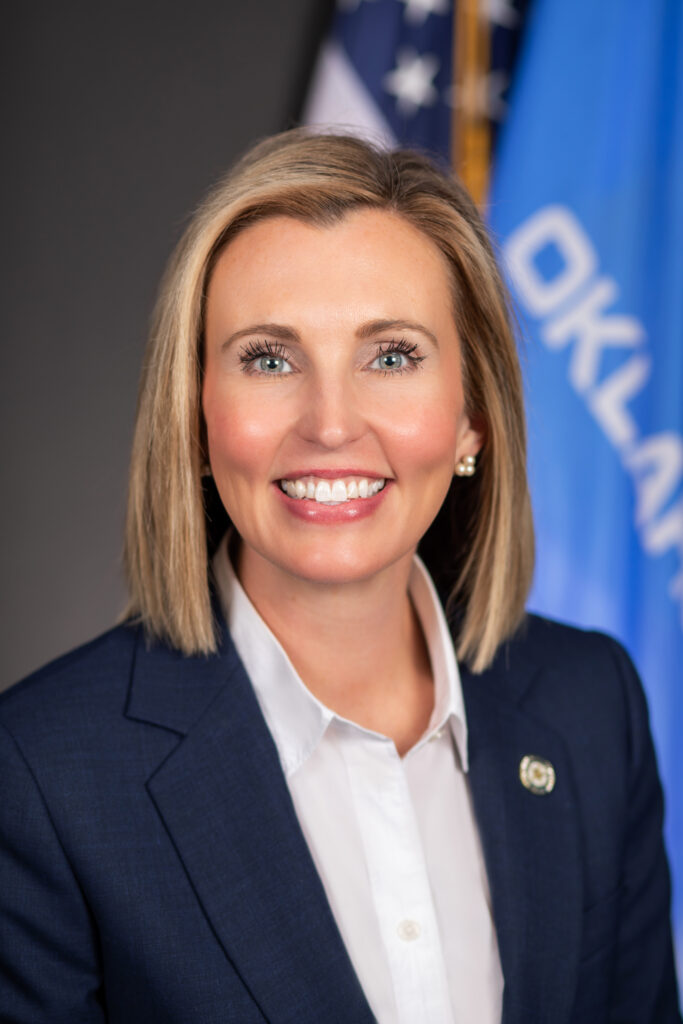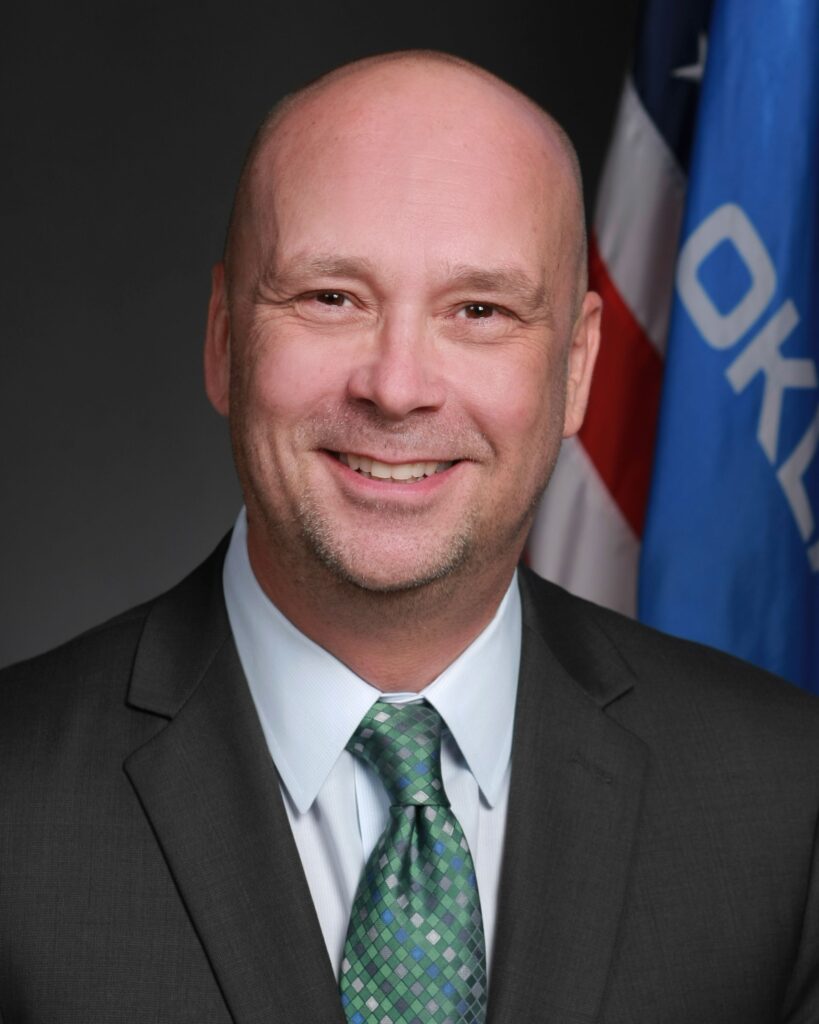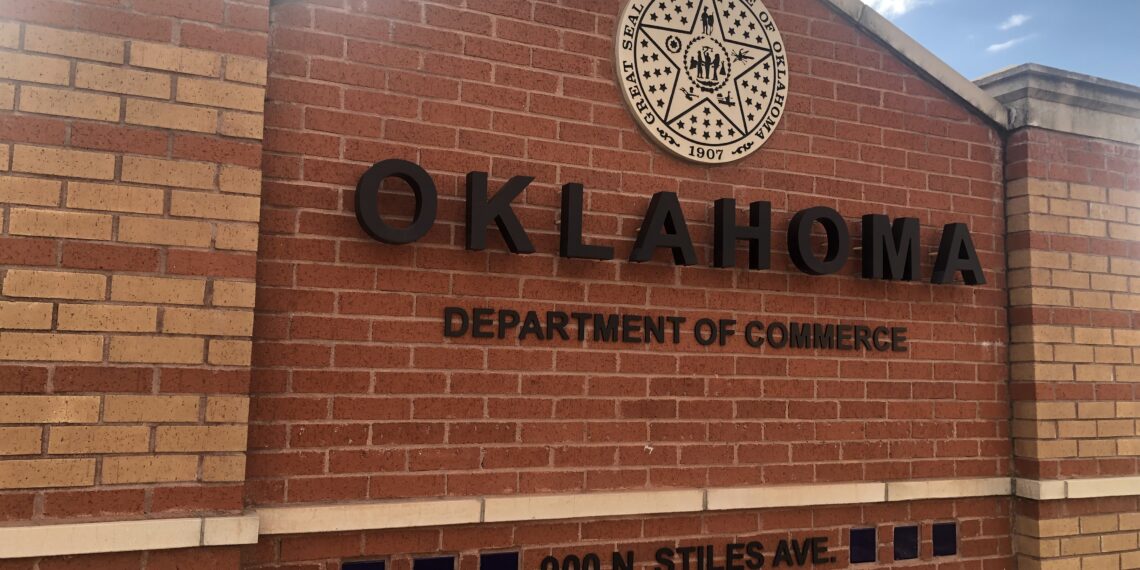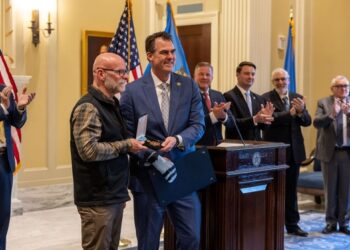OKLAHOMA CITY (OBV) – Oklahoma’s lieutenant governor and legislative leaders participated in the first committee meeting of a new effort focused on revitalizing economic development by maximizing business recruitment and retention efforts.
The Legislative Evaluation and Development (LEAD) Committee held its first meeting at the Oklahoma Department of Commerce on Wednesday.

Lt. Gov. Matt Pinnell, House Speaker-Designate Kyle Hilbert, R-Bristow, and Senate Pro Tem-Designate Lonnie Paxton, R-Tuttle, participated in the meeting along with other elected officials, including Sen. Kristen Thompson, R-Edmond, and Rep. Mike Osburn, R-Edmond, who together created the legislation that created the new economic development initiative.
“There’s a lot of great opportunities here with re-envisioning the next generation of commerce and economic development in the state of Oklahoma and what that’s going to look like in a collaborative effort from the legislative branch and the executive branch,” Hilbert said.
LEAD Committee members include Paxton, Thompson, Sen. Bill Coleman, R-Ponca City, Sen. Julia Kirt, D-Oklahoma City, Sen. Grant Green, R-Wellston, Hilbert, Osburn, Rep. Suzanne Schreiber, D-Tulsa, Rep. Kevin Wallace, R-Wellston, and Rep. John Kane, R-Bartlesville.
Thompson and Osburn wrote Senate Bill 1447 and House Bill 3252 – complimentary pieces of legislation that chart a new course for accelerating economic and business development in the state.
SB 1447 established the Oklahoma Office of Economic Development, Growth and Expansion (OkEDGE) and the Division of Community Outreach and Revitalization Enterprise (CORE) within the Oklahoma Department of Commerce. The bill also created the Legislative Evaluation and Development (LEAD) Committee, a legislative committee that will review certain incentive packages for relocating or expanding businesses.
HB 3252 modified the functions and programs of the Oklahoma Department of Commerce to ensure its focus is on economic development and community development.
The LEAD Committee is composed of five Senate members and five House members and is chaired by the Senate pro tem and House speaker. The committee will review and determine each economic development initiative’s viability and benefit to Oklahoma.
The committee is a legislative branch, therefore it will make economic development recommendations to the Department of Commerce as well as the Senate and House of Representatives, according to Hilbert.
“This is a great opportunity to dig in and learn more,” Hilbert said.

Pinnell, unlike Hilbert, Paxton and the other legislators in the room, is not a member of the LEAD Committee, but attended to express gratitude for its creation and acknowledge the extensive effort that preceded it.
State leaders and legislators gathered two years ago to discuss the future of the Department of Commerce, specifically, how the department and the legislature could better work together to lift Oklahoma’s economy, according to Pinnell.
“Part of Sen. Thompson’s legislation created why you are here today, and I couldn’t be more excited about this,” Pinnell said. “The reason that this is so needed today is because we now have deal flow inside the state of Oklahoma that is at a level that requires the legislature’s help, and that is a good problem to have. We’ve got great incentives, but with the amount of companies looking at Oklahoma [as a possible expansion destination], we need the legislature’s help, and we, the Department of Commerce, need to make sure we’re doing it the right way.”
Thompson left the first LEAD Committee meeting optimistic about what it will be able to accomplish.

“We got some really great members, the discussions were great. The collaboration and desire to collaborate to do good things for the state is evident,” Thompson said. “Rep. Osburn and I have been working on this for probably 18 months, at this point, and it feels really good to see your idea come to life. It’s really exciting.”
Thompson said the LEAD Committee’s purpose is to explore and evaluate potential new economic expansion and business retention projects that require legislative action.
“Moving forward, we will continue to evaluate projects that come forward to us. We are going to really be intentional in investigating these projects and making sure they’re viable.”
The committee still must determine the frequency of meetings, but Hilbert said future meetings will likely be held at the State Capitol.
Osburn said Wednesday’s meeting is the first of what he hopes will be several meetings focused on revitalizing economic development.

“I’m excited about this. I’m excited to get things kicked off,” Osburn said. “Hopefully, we’ve got some good economic development on the frontier.”
Kirt said collaboration is key to economic success.
“I’m excited to roll up my sleeves for the new LEAD Committee because it’s a chance to work together on real solutions that help businesses create jobs and build better lives for people across our state,” Kirt said. “When we work together and put the people of Oklahoma first, we create an economy that works for all Oklahomans.”
OkEDGE will serve as the state’s leading entity in matters pertaining to economic development, with a focus on recruiting companies to either expand or start in Oklahoma, as well as retaining companies that already exist in Oklahoma. Its duties will be as follows:
- Being empowered to strategically drive opportunities for economic growth and diversification across the state;
- Collaborating with local, regional and state entities;
- Coordinating the funding and investment activities of each element of the state’s economic development efforts and marketing campaigns to achieve better results for the state’s recruitment and retention of businesses; and,
- Acting as the principal point of contact regarding investment in this state for public officials, businesses and the public.
CORE will focus on the long-term development of local communities to increase competitiveness and enhance economic opportunities. CORE’s duties will pertain to local economic opportunities and economic development, including, but not limited to the following:
- Creating new and higher-quality jobs for the people of the state through long-term development of local communities;
- Maintaining communication of information between the department and communities through regional organization and representaiton;
- Carrying out policy development and research in support of the long-term competitiveness of this state;
- Providing technical assistance to local communities in securing federal funding, incentive availability and community development;
- Providing assistance and funding in development of potential sites for economic development;
- Coordinating with other state agencies deploying federal and state funds for infrastructure development including, but not limited to, the Department of Transportation, the Oklahoma Water Board and the Oklahoma Broadband Office; and,
- Assisting in compliance with the laws and regulations of economic incentives and economic development initiatives.
The original version of SB 1447 envisioned an entity that worked within the Department of Commerce, but was solely focused on economic development through business retention and recruitment. The entity would have been managed by a board of directors.
The bill was amended, with changes making OkEDGE part of Department of Commerce operations and scrapping the board of directors. The amended version of the bill added CORE to focus on developing Oklahoma communities so to make them more desirable for companies to remain in.
Osburn and Thompson said the essence of SB 1447 remains the same, with OkEDGE and CORE cooperating through unique functions to grow the state’s economy.
“They’ll be two separate divisions so that each division can be laser-focused on what it is that they do. The business recruiting and retention will be laser-focused on business recruiting and retention, and the community development side of things, which is kind of the rest of what Commerce does, can be laser-focused on that,” Osburn said. “They will work together, but they will have their singular focus, and I think that will work out way better.”
HB 3252 was originally written to modernize the Department of Commerce’s statutory duties. It modified the department’s mission statement and duties and the state’s five-year economic development plan. It also ended the Commerce Department’s tenure as Oklahoma’s official liaison agency for strategic economic development and business recruitment, instead making Commerce a technical assistance resource for local communities seeking federal funding opportunities.
Those efforts will remain within Commerce, but be focused through CORE.
Thompson and Osburn developed the idea of OkEDGE after major companies, including Panasonic, Tesla and Volkswagen, chose to not build factories in Oklahoma. The entity will work to dissuade major companies from leaving Oklahoma. Michelin representatives announced late last year that the company was closing down its factory in Adrmore, which employed around 1,400 Oklahomans.
OkEDGE will work to ensure that no other companies choose to leave Oklahoma.

















